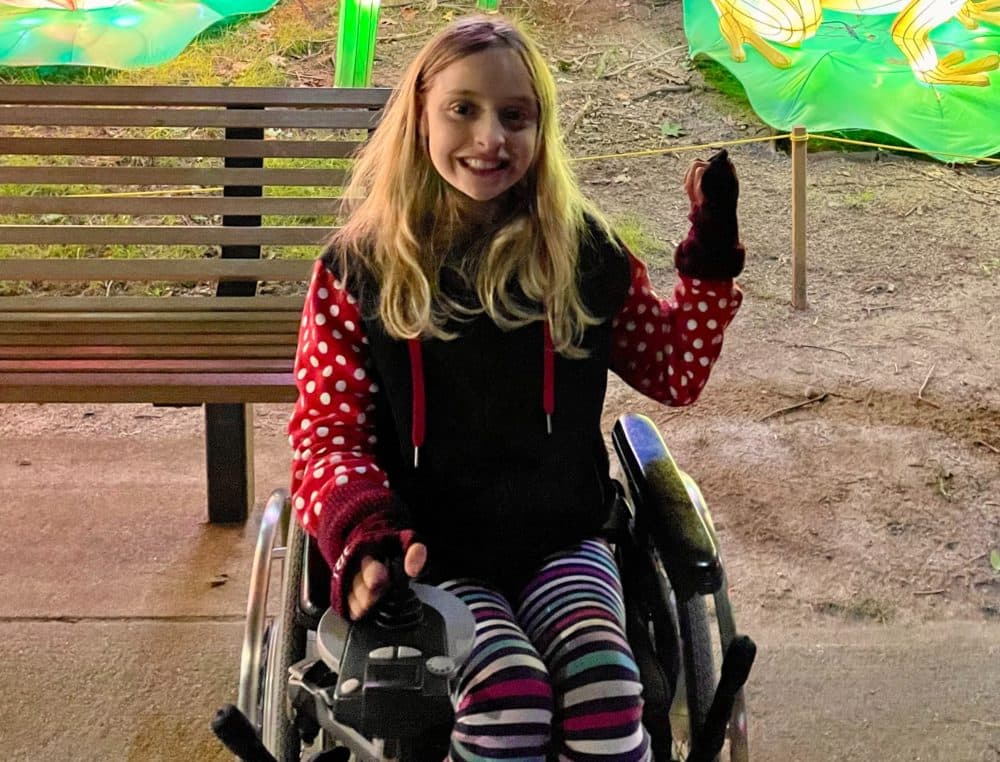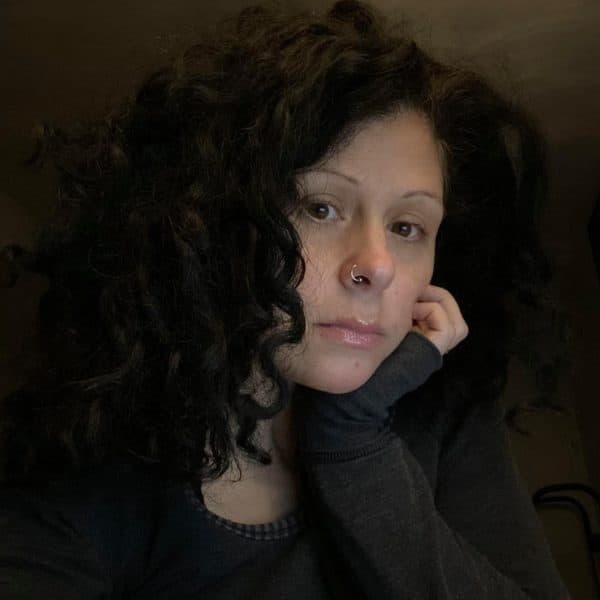Advertisement
Commentary
'You don’t have to be like everyone else,' I tell my daughter. I hope she can believe me

Let me tell you what it’s like to have an adorable white, blonde, green-eyed girl in a pink walker or wheelchair. How people — even doctors — assume she will grow out of it, how they admire her ability to maneuver her wheelchair, congratulate her ability to take hesitant steps with her walker, leg braces, adaptive shoes and deep breaths.
Or they whisper about how serious her diagnosis is, clucking at us as we walk past, murmuring about us, calling her a warrior or a hero, but not inviting her for a playdate. The story I tell the most is about the time she walked down the street with her dad, one shaky step at a time, and a lady passed by and said, “Oh bless you, dear,” and my daughter looked at her and said, “But I didn’t sneeze!”
My daughter doesn’t want pity, admiration or congratulations for doing the things she does every day. She wants inclusion. To be seen as a person of value, who can read and do math and act, and who wants to be a teacher and a mother when she grows up. And she wants to play with other kids.
The way the world treats disabled people like my daughter enrages me to the point of exhaustion. It’s infantilizing and dismissive at best. And then I remember, it’s still an ableist world, built by, and overwhelmingly for, nondisabled people. We change only when the disability community speaks up and claims their spaces. As they should. But why should they have to?
My daughter doesn’t want pity, admiration or congratulations for doing the things she does every day. She wants inclusion.
Not long ago, there was no disability community. People like my daughter were sent away. Institutionalized. Before that, the Nazis would have sent her to the camps. Even now, expectant parents are given the option of prenatal testing to wipe out many disabled humans before they can be born. To some, this is modern science at its best. To others, this is eugenics. My daughter’s medical condition was not detected in utero but I knew from the moment she was born.
I watched the recent debate between Mehmet Oz and John Fetterman, candidates for a U.S. Senate seat in Pennsylvania, and felt enormous compassion for Fetterman. The Oz campaign has mocked him endlessly, Oz insisted he had nothing to do with it, and all I could think about was Oz’s political idol, Trump, mocking a disabled journalist for all the world to see and then lying about it later. My child, whose disability is neurological, speaks in a way not unlike Fetterman. She knows exactly what she wants to say but sometimes, she needs a moment to get it out. Sometimes prompting helps her. I could see my daughter, were she in a political debate, also saying something like, “I do not believe in supporting the Supreme Court,” when that wasn’t what she meant. But in our house, that isn’t damning. We’d give her a moment to try again.
To me, it’s clear that Fetterman is the more qualified, reasonable, thoughtful candidate, but I worry people won’t see past smushed phrases, reaching for words, and auditory processing delays. Doesn’t it matter more what’s inside someone’s head? It’s all in there, and we have many ways to help him convey his thoughts and his plans for his constituents. But people are so judgmental about disability. Even I catch myself, as embarrassing as it is.
Recently I worked out of a different office than usual. Lingering outside the building near the locked, card-swipe-only entrance was a man in a power chair. His muscles were so wasted that his arms and legs were twisted into a pretzel shape and his head hung on his neck. I, parent of a wheelchair user whose feet often twist in the very same shapes, held my colleague back. “Maybe we shouldn’t go in until he’s gone,” I suggested with apprehension. When I saw him in the building later, I was deeply ashamed. Of course, the man was a colleague, too.
So many people overlook the simple fact that she is a human being.
Once I can acknowledge that even I am ableist, I see it everywhere. I see ableism even in my daughter’s health care providers. We have been refused care because some providers don’t want to come to our home when she is too unwell to travel. We have been refused care because other providers think she is too fragile, too disabled to handle care. We have been sought after because she is such a medical anomaly even among children with her very rare diagnosis of pontocerebellar hypoplasia that they want to study her condition, forgetting that she is a human, a child, someone who plays with dolls and loves princesses and singing and cats.
Many of those who do see us talk to me. They call me Mom instead of Aimee and ask me how she’s been feeling. I look at her and ask her to respond. But she is so accustomed now to being spoken over that she looks back at me and says, “You talk.” She knows the doctors are impatient. They don’t want to wait for her to find the right words.
So many people overlook the simple fact that she is a human being.
“I hate being disabled,” my daughter often says. Of course, she does. This is what society teaches her. But I want to teach her to love herself. “You are beautiful,” I tell her, because she is. “Everything about you. You don’t have to be like everyone else. We don’t want you to be. We love you exactly the way you are. Everyone does.”
The problem is that she doesn’t believe me. My voice carries some weight because I am her mother, but just look at all the messages she gets from everywhere else. When the country supports politicians who mock people who move like she does, why would she believe me?
The crux of the issue is that my daughter, Fetterman, and other disabled people are not asking for accommodations. That is asking for an exception. They are asking for inclusion, which is what every other human being wants. Equality is not the same as accommodation. Equality is a world that works equally well for the disabled as it does for the nondisabled.
Accommodation is a nondisabled world that taps its toes and drums its fingers while it waits for the disabled to speak, or walk, or behave like everyone else. But that is not a world my daughter wants any part of, and frankly, neither do I.
